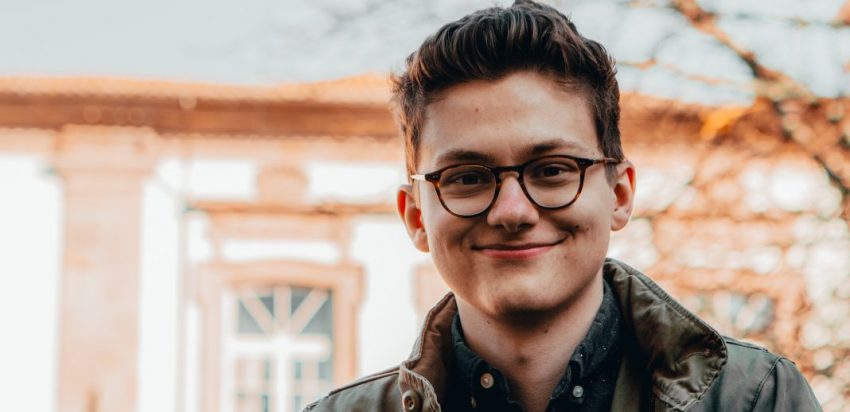From Security Guard to Cybersecurity Operator: How Alek Heit Broke Into the IT Industry

Ask Alek Heit what sparked his interest in cybersecurity, and he doesn’t have to think twice. “I really like the TV show Mr. Robot,” explained Alek. “I know that’s not the typical answer, but it’s how I initially learned about cybersecurity.”
After graduating from college with a double major in criminology and political science, Alek worked as a security guard in his hometown of Toronto. “I was in charge of loss prevention, stopping people from shoplifting while working undercover,” he said. But in early 2020, Alek decided he wanted to defend companies against an entirely different threat — cybercriminals.
Eager to set this mission in motion, Alek enrolled in the UofT SCS Cybersecurity Boot Camp. Today, he’s working as a security operations center analyst at one of Canada’s top companies — and has never been happier with his professional life.
Here’s his story, in his own words.
How was your academic experience in the boot camp?
The beginning was very hard — I had no technical experience or background in IT and felt like a fish out of water those first few weeks. But after spending lots of late nights supplementing my coursework by reading up on the industry, watching YouTube videos, and listening to cybersecurity podcasts on Spotify, I graduated top of my class in July 2020.
What was your favorite group project from the boot camp?
My favorite project had to do with a fictional stamp heist. Our instructor gave us data from the thief’s phone, and we parsed through text messages to see the heist being set up. Doing that digital forensics work with my boot camp friends was so much fun.
What were your biggest lessons learned, personally or professionally?
I realized that there’s always more to learn. Cybersecurity is constantly evolving as new technologies come out. For example, computers get security updates all the time. The bad guys trying to attack your computer are so innovative — they come up with clever ways of breaking in. As a digital defender, you have to constantly evolve. It’s like a game of cat and mouse. You have to learn and adapt, coming up with countermeasures to attacks. Security certifications expire after two to three years, so you’re always learning new knowledge. It’s really fun.
How did you land your current cybersecurity job at 2Keys?
After the boot camp ended in July 2020, I spent about two months getting my Security+ certification before starting my job search in early October. I’d heard about 2Keys in class, during our digital identity unit. They popped up a lot when I was researching top companies to work for in Canada, so I applied just before Christmas break and heard back shortly after. It was a two-step process: a behavioral interview with a recruiter, then a technical interview with five people. I was so nervous for that second interview! I spent two weeks preparing, studying all my notes from the boot camp and researching commonly asked questions.
How did that technical interview go?
I actually wound up acing it! My interviewers asked about common issues you might encounter on the job and how you would solve them, which I was prepared to talk through. They also asked questions about the current cybersecurity landscape. At the time, the FireEye and Solarwinds hacks were making headlines — and when one of my interviewers asked about recent cybersecurity news, I knew my stuff. The chief security officer also asked what I thought about the current geopolitical landscape, touching on topics like warfare, spying, and espionage, and I knew all the relevant terms from my time in the boot camp.
Did you get any support from Career Services staff during the interview process?
Yes! My boot camp career director, Natalie, was really great. She sent me a bunch of different questions and YouTube links to review for my technical interview, encouraging me to stay calm and fall back on my foundational knowledge. Once the interview started, my nerves went away. In the middle of the interview, I thought to myself, “This is going really well.” I felt completely prepared.
How have you liked your new job so far?
I love working for 2Keys — they’re the best company I’ve ever been with. The culture is fantastic, with teamwork and self-improvement at the forefront. Everyone is extremely friendly, too. You can tell that they genuinely care about others. Beyond that, cybersecurity is just so fascinating. The more I learn about the industry, the more I want to get my hands on it.
Looking back, how did your undergraduate studies in criminology and political science help prepare you for a career in cybersecurity?
Criminology taught me all about rules and regulations, showing how cybersecurity intersects with law, and political science helped me understand threat actors across the globe. During the boot camp, I realized the benefit of my unique background. In class one day, my instructor pulled up a threat map. You could see China, Russia, and North Korea lit up as countries that had sent attacks to America. I remember thinking, “I know why! I understand the geopolitical landscape.”
What advice would you give prospective boot camp students?
Put in the hours and work hard. Participate. Do the homework. Learn, and never stop. You will succeed. It may seem intimidating at first, but you’ll get there — and it will be worth it.
Ready to find your future? Explore programs in coding, data analytics, UX/UI, cybersecurity, fintech, and digital marketing through UofT SCS Boot Camps.

 Live Chat
Live Chat